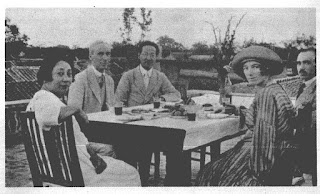Indie Spotlight is a column by WWII historical fiction author Alexa Kang. The column regularly features hot new releases and noteworthy indie-published books, and indie authors who have found success in the creative world of independent publishing.
As someone who had lived overseas and traveled in many different countries, I know first hand one can fall on love with places we visit to the point of wanting to become part of that world. When we are fortunate enough to have a chance to actually do that, the experience is a deep and transformative one that we wish to share with the world. In her debut novel Returning East, author Lauca took her experience of living abroad in China, used it as her inspiration, and created a historical fiction story that follows a young man's journey to the East. Today, she tells us in her own words her own journey in turning life into a story.







